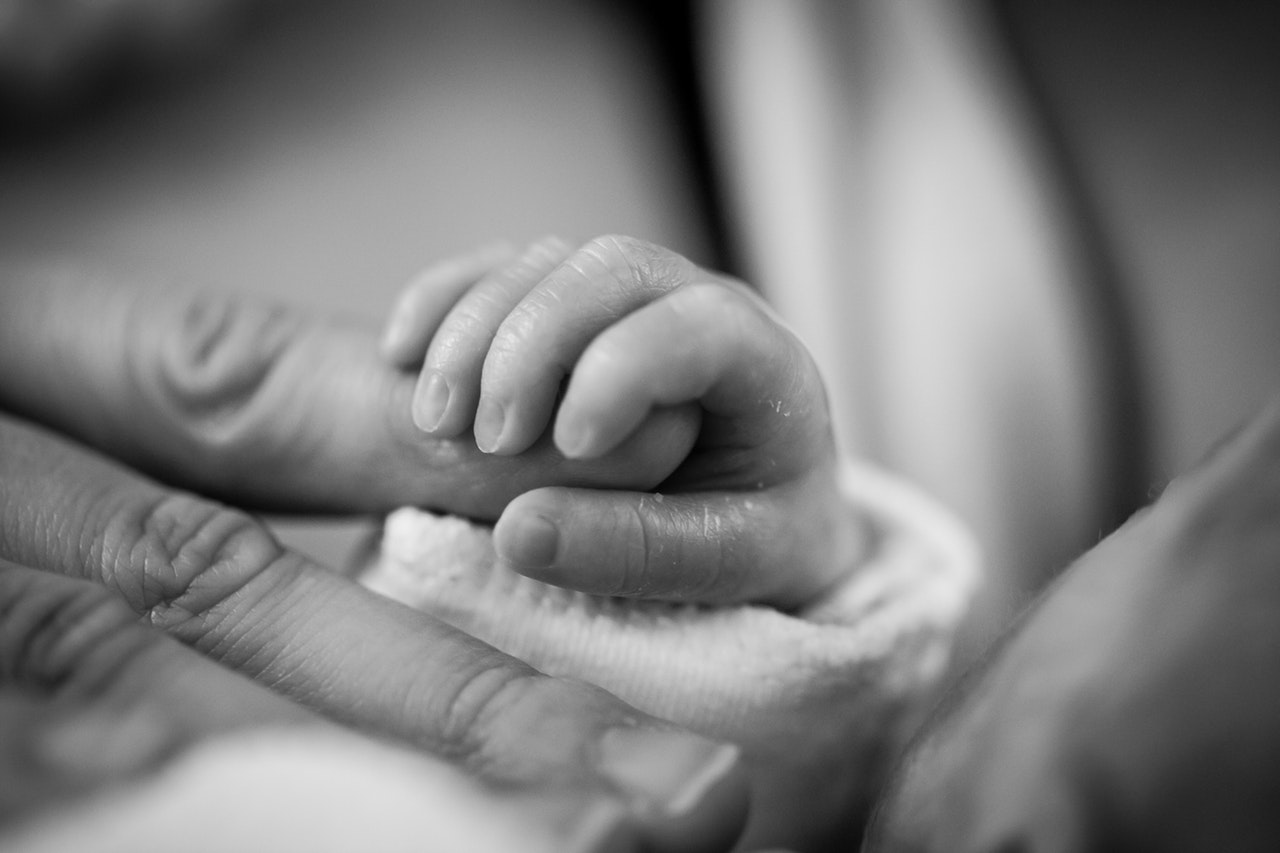 Don’t get me wrong. I know the grass isn’t always greener, but I know things now–things I didn’t know then. And I’m not sure how it would have changed my birth experience, if I had known these things back then, but there is power in knowledge. And I can safely say I did not have all the power I wish I had had in preparing for the labor and delivery of my son.
Don’t get me wrong. I know the grass isn’t always greener, but I know things now–things I didn’t know then. And I’m not sure how it would have changed my birth experience, if I had known these things back then, but there is power in knowledge. And I can safely say I did not have all the power I wish I had had in preparing for the labor and delivery of my son.
I have been researching, gathering information, and listening to friends’ birth stories since before and after my son’s birth. And we just celebrated my son’s 2nd birthday, so his birth story was on my mind once again. I’m not going to detail every moment of my labor, but I will give a quick run-down.
I lost my mucus plug at 5:50am. I started having contractions at 6am. By 7am, my waters had broken and my contractions were approximately 2-3 minutes apart. By 8am, we were trudging through rush-hour traffic to get to my midwife’s house. By 8:45am, we were settled in our room. And then the walking and the bouncing and the squatting and the swaying began. We were on a circuit, my husband and I. Walk a loop through the downstairs area, bounce on the birthing ball, squat on the floor and on the birthing stool and on the toilet, and then drop and sway as my contractions were peaking, so as to help our little guy move further down the birth canal. I was in the bed, on the floor, in the bathtub, sitting on the toilet, and hanging onto my husband for dear life. It felt like forever. In reality, I was in labor for “only” 13.5 hours. But I pushed for three of those hours. Yes, you read that right. THREE full hours of pushing before my little monkey man entered the world. But he was healthy, and I was alive, so the glow of birth overshadowed everything else we had endured throughout the day.
Needless to say, the glow has worn off.
I was always been a big proponent of natural birth, because hey, our bodies are meant to do this thing. They are built for growing babies and birthing them, and thousands of years ago our ancestors birthed all kinds of babies naturally, so it just made sense to follow that path. We found a midwife and a “home birth” situation (I gave birth at her house, which is set up like a birthing center). We hired a doula. I read Ina May’s Guide to Childbirth. We took 12 weeks of a Bradley Method birthing class. We researched online, read more books, and talked to friends about their natural birthing experiences. I felt like we had this cat in the bag.
Boy, was I wrong.
Nothing can prepare you for the shock and pain of labor, just like nothing can prepare you for the way your life TOTALLY changes once you have a child involved. All of that information I had read and thought I absorbed went right out the door. All I could do, between excruciating contractions and attempts to control my breathing, was just survive until the next wave hit. None of my “pain relaxation” techniques surfaced and rescued me from my misery. None of my comforting “birthing items” (music, candles, rice sock, essential oils, massager) ever left the bag. I didn’t talk, I barely wanted anyone to touch me, and I wanted to snap off everyone’s head when they told me for the millionth time: “Relax your shoulders!”
I know I’m not alone here. But I chose specifically to have an “all-natural home birth.” The home birth part was fine, generally speaking. But I got so caught up in the “all-natural” mindset that I refused to consider any other labor and delivery options. I was anti-hospital, anti-medical interventions, anti-drugs, and anti-deviation-from-my-birth-plan.
But now, two years postpartum, I know way more about pregnancy, labor, delivery, and postpartum issues than I ever thought I knew before. For your benefit, and for others who, like me, think they know more than they actually know, I would like to list some pros and cons of having an “all-natural home birth” (this includes actual home births and births at a birthing center) versus “a medical-model hospital birth” (which includes natural and medically-intervened births) so that maybe you can be more empowered in your birthing experience.
Pros of an All-Natural Home Birth
- You develop a bond with your practitioner over the course of several months, and you KNOW he/she is going to be the one to deliver your baby (except under VERY extenuating circumstances).
- You are free to roam around however you please. You can walk, crawl, run, jump, bounce, float in a bath (if available), or lay down–whatever your heart desires.
- You can eat and drink whatever you want (or, really, whatever you can tolerate while in the throes of labor).
- You aren’t covered in monitors and IVs. Your practitioner will still monitor your heart rate and baby’s heart rate, but you aren’t constrained by attachment to some large, hulking machine. If you tested positive for Group B Strep (like I did), there is a solution called Chlorhexidine that your practitioner can use throughout labor that kills the bacteria and helps to prevent the bacteria from transferring to your baby during birth.
- You can have as many people around as you want.
- You can create an ambience that makes you comfortable (lighting, candles, music, open windows).
- You can give birth in whichever position works for you (for me, it ended up being on a birthing stool–NOT the most comfortable position, but the only one in which I was making good enough progress).
- You can have immediate skin-to-skin contact and delayed cord-clamping.
- You can breastfeed your baby right away.
- You can hold your baby as long as you want.
- You don’t have to worry about your baby being taken away for a bath or to be stowed away in the nursery.
- You can bathe WITH your baby after birth (I did this, and it was so peaceful and beautiful).
- And last, but certainly not least, you get to be AT home with your baby the day he/she is born and stay there (or, like me, go back home shortly after birth).
Cons of an All-Natural Home Birth
- You may not have immediate access to medical interventions/supports: epidural, pitocin, vacuum, forceps, C-section surgeons, other medical staff, or a NICU.
- Depending on where you live, or where your birthing center is located, you may be some distance from a hospital, which can be detrimental if you need to be transported.
- Your midwife and other “staff” may not be able to provide enough support, and/or they may get burned out if they don’t have proper reinforcements.
Pros of a Medical-Model Hospital Birth
- You have the option of having an all-natural birth experience.
- You have immediate access to medical interventions should you need them or change your mind and decide you want them (bring on the epidural!).
- You have several staff members available to support you, and they have reinforcements on deck if needed (this usually includes on-site lactation consultants).
- You have immediate access to surgeons, other medical staff, and a NICU, in case of emergency.
- You may be able to move around some, but there will most likely be restrictions in place.
- You may be able to listen to music or adjust the lighting to make your environment more comforting.
Cons of a Medical-Model Hospital Birth
- The OB you have been seeing for the past 9-10 months may not be available on the day of your delivery.
- You will not have been able to develop a relationship or bond with any of the nurses attending to you.
- You may end up with a nurse who is not flexible or who does not listen to your desires. (The worst hospital experiences I have been told about by friends had to do with horrible attending nurses.)
- You may be induced if you are not progressing fast enough. (What are the standards by which that is determined? I don’t know. I think it depends on the hospital and the attending staff.)
- You may be forced into having a C-section if you are not progressing fast enough.
- You may have forced medical interventions (pitocin, vacuum, forceps) if you are not progressing fast enough.
- You may be given an episiotomy without your informed consent (a friend told me this happened to her).
- You may not be able to move around or walk around as you wish. (I can almost guarantee you will not be able to give birth on a birthing stool, or on the toilet, or in a bath, or hunched over a birthing ball.)
- You will be required to wear heart monitors, sometimes ones that restrict your movement because you are attached to a large, hulking machine.
- You will be required to have IV antibiotics if you tested positive for Group B Strep.
- You may not be able to eat or drink as you wish (one friend told me she wasn’t even allowed a sip of water).
- Your baby may be taken from you immediately to be wiped off, suctioned, weighed, measured, foot-printed, etc.
- You may not get to breastfeed your child right away.
- You may be required to stay for 24-48 hours, or sometimes longer (even if you and baby are healthy).
- You may have billing staff come INTO YOUR ROOM shortly after giving birth and demanding payment (I’m not joking–this happened to at least two people I know).
After all of this, why do I say I regret my all-natural home birth? Well, there are a few reasons.
For one, I don’t like that I didn’t give myself the option of having access to an epidural. I feel like I have a pretty good tolerance for pain, but the pain of labor was almost unbearable. Some crazy women say that it’s thrilling, like riding a wave. But I’m pretty sure those women are magical unicorns.
For another thing, I think my midwives told me to start pushing too soon. I feel like if I had been in a hospital with less “direct attention,” so to speak, I might have been able to help my son descend further down the birth canal before pushing, thus shortening my pushing time. I’m more devastated by this than most women, because at five weeks postpartum I suffered multiple pelvic organ prolapses. I definitely had other risk factors, but I am certain my issues were aggravated by three hours of pushing.
Lastly, my son and I struggled with breastfeeding. It would have been nice to have direct assistance from on-site lactation consultants, rather than having to drive back and forth to visit lactation consultants while also trying to learn how to be parents to a 2-day-old.

















Hi Stefanie,
I love this post. I had all four of my kids by natural birth in a hospital – including twins. My original obs were there for each birth and I felt like the hospitals were always very respectful of my decision to be “drug” free. I also felt like the nurses we very supportive of my breastfeeding. Obviously, this was just my experience. I gave birth in Las Vegas, Los Angeles, and San Francisco; and all three were positive experiences.
Keep up the writing. I love your articles.
Thank you, Melanie, and thank you for sharing! I can’t believe you had FOUR natural births! You are a total superwoman. I’m so glad you had such good experiences in the hospital, and across the country. It gives me hope that the medical model of birth is becoming more integrated with the home birth/midwifery model of birth–lots of nurturing, support, and freedom, but with access to medical interventions if needed. Hopefully this helps inspire women not to be so black and white (like I was) about their birth plans. 🙂
I have to admit, I was a little disappointed when reading the title since I personally had such a great home birth experience. But after reading the whole thing, I think you hit the nail on the head as far as pros/cons go. Your story sounds almost identical to my first home birth (14 hours of labor, 2.5 pushing), yet after a lot of consideration and deliberation, I decided to have another home birth with my second (this time at my home). It was sooo different. I actually slept through most of the first stage of labor, was in a lot of pain during the heavy contractions, but ended up having her 2 hours later, after only 3 pushes! It was truly amazing, and I was so glad I opted for the home birth again. I also prepared my body a lot more this time with regular chiropractic care and daily yoga, so I think that played a part. When all is said and done, you come out on the other end feeling like you can do anything, and that is pretty powerful.
Somehow I missed this comment, Michelle! I am so sorry for the late response. Thank you for sharing your home birth experiences! I am amazed at your tenacity and dedication!! I myself will never have another child, but it has nothing to do with the home birth experience. If it were possible for me to have another child, I would definitely take some tips from you and prepare my body a lot more. It helps knowing what to expect during birth, which is something a first-time mom just can’t know. And that’s why I wrote this article–so that, hopefully, other first-time moms can be better informed before they give birth. It’s encouraging to hear that every birth experience can be different, so hopefully mamas out there won’t be dissuaded from pursuing their ideal birth plan. 🙂
Comments are closed.